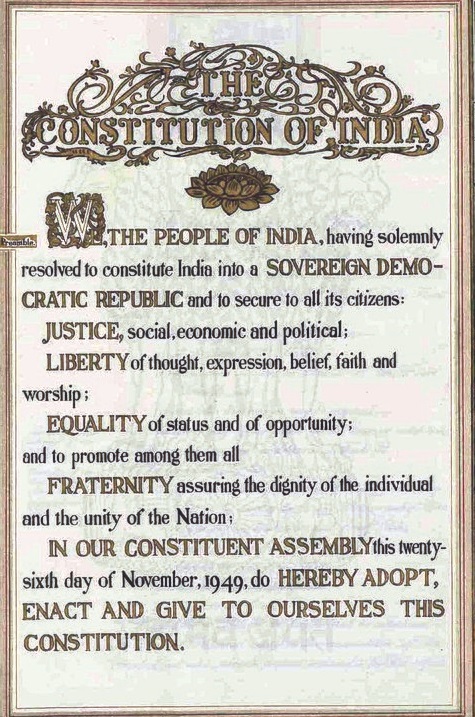![]()

Interpretation:
- Sovereign
- Sovereign means the independent authority of a state – that it has the power to legislate on any subject and that it is not subject to the control of any other State / external power.
- Socialist
- The term socialist used here refers to democratic socialism, i.e. achievement of socialist goals through democratic, evolutionary and non-violent means.
- Secular
- Secular means that the relationship between the government and religious groups are determined according to the constitution and law. It separates the power of the State and religion. There is no difference of religion. All religions are equally respected and there is no State religion. All the citizens of India are allowed to profess, practice and propagate their religions.
- Democratic
- The people of India elect their governments by a system of universal adult franchise, popularly known as “one person one vote“. The word democratic refers not only to political democracy but also to social and economic democracy.
- Justice
- Justice stands for rule of law, absence of arbitrariness and a system of equal rights, freedom and opportunities for all in a society. India seeks social, economic, and political justice to ensure equality to its citizens.
- Liberty
- The idea of liberty refers to the freedom on the activities of Indian nationals. This establishes that there are no reasonable restrictions on Indian citizens in term of what they think, their manner of expressions and the way they wish to follow up their thoughts in action. However, liberty does not mean freedom to do anything, and it must be exercised within the constitutional limits.
- Equality
- The term ‘equality‘ means the absence of special privileges to any section of society, and the provision of adequate opportunity of all the individuals without any discrimination.
- Fraternity
- This refers to a feeling of brotherhood and sisterhood and a sense of belonging with the country among its people. The Preamble declares that fraternity has to assure two things – the dignity of the individual and the unity and integrity of the nation. The word ‘integrity‘ has been added to the Preamble by the 42nd Constitutional Amendment (1976).
